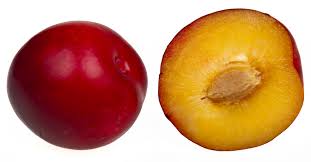Watermelon benefits. How does watermelon benefits for health? Watermelon is a delicious and refreshing fruit that’s also good for you.
It contains only 46 calories per cup but is high in vitamin C, vitamin A, and many healthy plant compounds.
Here are the top watermelon benefits for health.
1. Helps You Hydrate - watermelon benefits
Drinking water is an important way to keep your body hydrated.
However, eating foods that have high water content can also help. Interestingly, watermelon is 92% water.
What’s more, high water content is one of the reasons why fruits and vegetables help you feel full.
The combination of water and fiber means you’re eating a good volume of food without a lot of calories.
SUMMARY
Watermelon has high water content. This makes it hydrating and helps you feel full.
2. Contains Nutrients and Beneficial Plant Compounds - watermelon benefits
As far as fruits go, watermelon is one of the lowest in calories — only 46 calories per cup (154 grams). That’s lower than even low-sugar fruits such as berries (2).
One cup (154 grams) of watermelon has many other nutrients as well, including these vitamins and minerals: Watermelon benefits of eating.
Vitamin C: 21% of the Reference Daily Intake (RDI)
Vitamin A: 18% of the RDI
Potassium: 5% of the RDI
Magnesium: 4% of the RDI
Vitamins B1, B5, and B6: 3% of the RDI
Watermelon is also high in carotenoids, including beta-carotene and lycopene. Plus, it has citrulline, an important amino acid.
Here’s an overview of watermelon’s most important antioxidants:
Vitamin C
Vitamin C is an antioxidant that helps prevent cell damage from free radicals.
Carotenoids
Carotenoids are a class of plant compounds that includes alpha-carotene and beta-carotene, which your body converts to vitamin A.
Lycopene
Lycopene is a type of carotenoid that doesn’t change into vitamin A. This potent antioxidant gives a red color to plant foods such as tomatoes and watermelon and is linked to many health benefits.
Cucurbitacin E
Cucurbitacin E is a plant compound with antioxidant and anti-inflammatory effects. Bitter melon, a relative of watermelon, contains even more cucurbitacin E.
SUMMARY
Watermelon is a low-calorie fruit high in some nutrients, especially carotenoids, vitamin C, and cucurbitacin E.
3. Contains Compounds That May Help Prevent Cancer - watermelon benefits
Researchers have studied lycopene and other individual plant compounds in watermelon for their anti-cancer effects.
Though lycopene intake is associated with a lower risk of some types of cancer, study results are mixed. The strongest link so far seems to be between lycopene and cancers of the digestive system. Watermelon benefits of eating.
It appears to reduce cancer risk by lowering insulin-like growth factor (IGF), a protein involved in cell division. High IGF levels are linked to cancer.
Besides, cucurbitacin E has been investigated for its ability to inhibit tumor growth.
SUMMARY
Some compounds in watermelon, including cucurbitacin E and lycopene, have been studied for their potential to prevent cancer, though study results are mixed.
4. May Improve Heart Health - watermelon benefits
Heart disease is the number one cause of death worldwide.
Lifestyle factors, including diet, may lower your risk of heart attack and stroke by reducing blood pressure and cholesterol levels. Watermelon benefits of eating.
Several nutrients in watermelon have specific benefits for heart health.
Studies suggest that lycopene may help lower cholesterol and blood pressure. It can also help prevent oxidative damage to cholesterol.
According to studies in obese, postmenopausal women, and Finnish men, lycopene may also reduce the stiffness and thickness of artery walls.
Watermelon also contains citrulline, an amino acid that may increase nitric oxide levels in the body. Nitric oxide helps your blood vessels expand, which lowers blood pressure.
Other vitamins and minerals in watermelon are also good for your heart. These include vitamins A, B6, C, magnesium, and potassium.
SUMMARY
Watermelon has several heart-healthy components, including lycopene, citrulline, and other vitamins and minerals. Watermelon benefits of eating.


Comments
Post a Comment